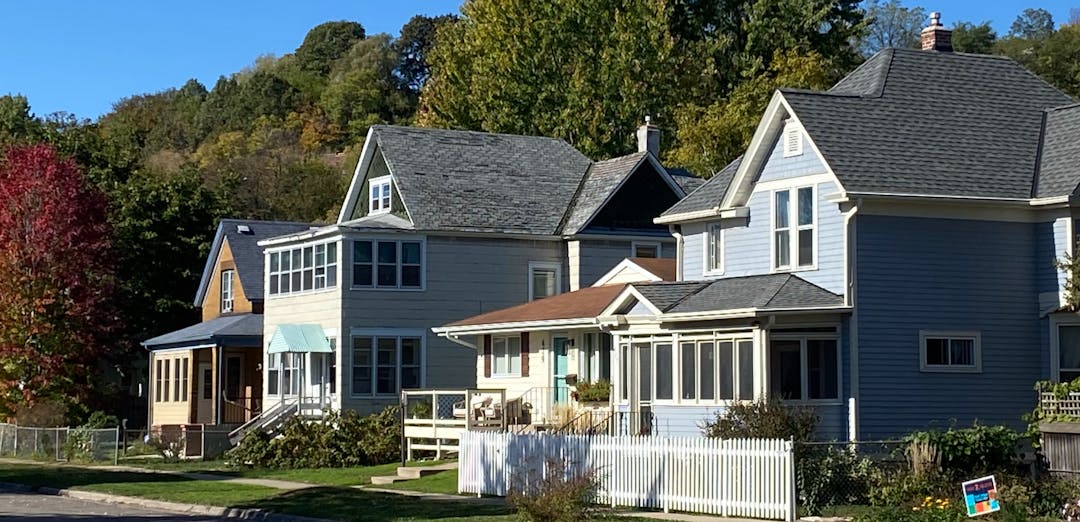1-4 Unit Housing Study Engagement Website
Consultation has concluded.

Welcome and thank you for joining the conversation!
The 1-4 Unit Housing Study is engaging the community around zoning and 1-4 unit, neighborhood-scale housing types to inform the proposed zoning code amendments to support a greater range of housing options in one-family (RL-R4), two-family (RT1), and townhouse (RT2) zoning districts. Zoning code regulations can determine the size, layout, and type of housing allowed on a property.
Visit the 1-4 Unit Housing Study project page to learn more about the study, review the project documents, and sign up for email updates.
Visit the Idea Board and Stories tab at the bottom of this page to share your thoughts on ideal housing types for your household and examples of housing that fits in with the neighborhood!
Here's how you can best engage on this engagement website:
- Learn about Neighborhood-Scale Housing
- Neighborhood-scale housing is housing that is compatible in scale with single-family neighborhoods and already exists in many of the city's urban neighborhoods. Examples that are being evaluated in this study include: single-family detached, single-family attached (twinhomes and townhomes), duplexes, triplexes, fourplexes, cluster or cottage developments, and accessory dwelling units (ADUs). Click here to view an information sheet.
- Neighborhood-scale housing is housing that is compatible in scale with single-family neighborhoods and already exists in many of the city's urban neighborhoods. Examples that are being evaluated in this study include: single-family detached, single-family attached (twinhomes and townhomes), duplexes, triplexes, fourplexes, cluster or cottage developments, and accessory dwelling units (ADUs). Click here to view an information sheet.
- Watch a Virtual Engagement Session presentation
- Learn more about the 1-4 Unit Housing Study and listen in on what was discussed in small group discussions on neighborhood-scale housing types and potential opportunities for the City to add more housing.
- Tuesday, February 1, 2022 - Meeting Recording
Co-hosted by Macalester-Groveland Community Council and Highland District Council - Thursday, February 10, 2022 - Meeting Recording
Co-hosted by Como Community Council, Hamline Midway Coalition, and North End Neighborhood Organization Wednesday, March 2, 2022 - Presentation Slides
Co-hosted by Dayton’s Bluff Community Council, Southeast Community Organization, and Greater East Side Community Council
- Tuesday, February 1, 2022 - Meeting Recording
- Learn more about the 1-4 Unit Housing Study and listen in on what was discussed in small group discussions on neighborhood-scale housing types and potential opportunities for the City to add more housing.
- Explore a Reference Map of Saint Paul
- Saint Paul's residential urban neighborhoods are made up of different zoning districts and lots that have different physical characteristics. Neighborhoods are also located in different proximities to transit routes and Neighborhood Nodes, which the 2040 Comprehensive Plan designates as areas planned for higher density, mixed-use development. Click here to view the reference map.
- Saint Paul's residential urban neighborhoods are made up of different zoning districts and lots that have different physical characteristics. Neighborhoods are also located in different proximities to transit routes and Neighborhood Nodes, which the 2040 Comprehensive Plan designates as areas planned for higher density, mixed-use development. Click here to view the reference map.
- Share Your Ideas
- You'll find tools in the tabs below to share ideas, leave comments, and engage on this study
- Idea Board: Post ideas and photos with others in your community
- Stories: Share your story about your past experiences and aspirations related to housing
- Idea Board: Post ideas and photos with others in your community
- You'll find tools in the tabs below to share ideas, leave comments, and engage on this study
- Visit Again
- As the study moves along, you'll find different ways to provide input, key dates for engagement opportunities, and supporting information posted on this site.

